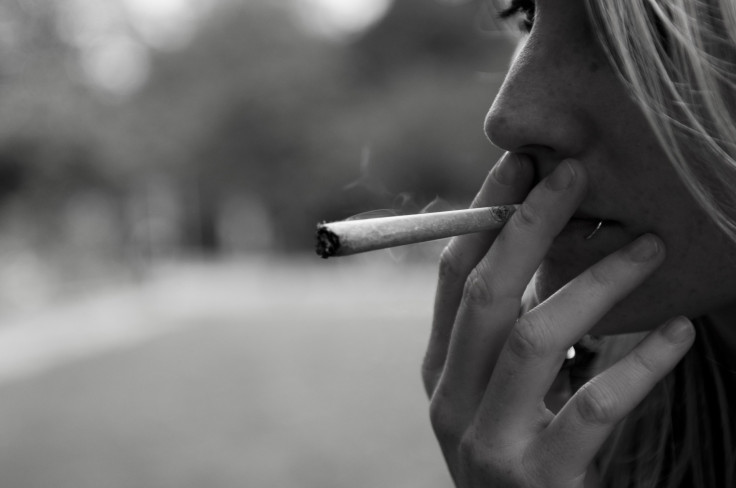Pregnant Women And Marijuana Use: Why The AMA Says Pot Needs To Have A Warning Label

Pregnant women may need to think twice before using marijuana to ease morning sickness or relax their aching body — they could be putting their baby at risk. The American Medical Association (AMA) announced on Monday it will push for warnings to be added to medical and recreational pot products wherever they’re sold.
If it were to happen, the warnings would be similar to those currently seen on alcohol and tobacco products, which warn women about the risks of using such products while pregnant. Speaking on the subject, Dr. Diana Ramos, a Los Angeles physician with the American College of Obstetricians and Gynecologists (ACOG), said, “So why not do the same thing with marijuana, since it is the most commonly used illicit drug during pregnancy.”
After ACOG proposed the warnings at the AMA’s policy-making meeting in Atlanta, the AMA voted to adopt the proposal, adding it to its lobbying agenda. The decision comes following a wealth of studies that have suggested smoking tobacco while pregnant causes low birth weight, premature birth, and behavioral problems in young children. However, there’s been a lack of research proving marijuana is responsible for these suspected side effects as well — not only in women who are pregnant but also those who are breastfeeding.
The National Institute on Drug Abuse cites some of the negative links between marijuana use and pregnancy. Rat studies, for example, have suggested exposure to even low levels of THC — the main psychoactive chemical in marijuana — during late pregnancy could negatively affect the brain and behavior of offspring. When it comes to humans, babies born to women who used marijuana during their pregnancy were born with more trembles, higher pitched cries, and differences in what they find visually stimulating, altogether indicating problems with neurological development. Other research has suggested THC is excreted through breast milk, giving new mothers reason to be cautious with their marijuana use.
Several states currently require health warnings on marijuana products, but none of the states, except for Oregon, specify the possible risks pregnant or breastfeeding women could face. In Colorado, where medical and recreational marijuana sales added up to nearly $700 million in 2014, there’s no ban on pregnant women buying pot.
The AMA estimates roughly 5 percent of Americans use marijuana during pregnancy. But among urban low-income women, that percentage could be much higher — up to 28 percent. The AMA ultimately hopes to make it a federal requirement that marijuana labels contain warnings, but because marijuana use is still illegal under federal law, the policy will seek to implement regulations at a local and state level for now.
According to The New York Times, the proposed labels will read something like this: “Warning: Marijuana use during pregnancy and breastfeeding poses potential harms.” Labels like this would only appear on marijuana products in the 23 states and Washington, D.C., where marijuana is currently available either medicinally or recreationally.
Published by Medicaldaily.com



























